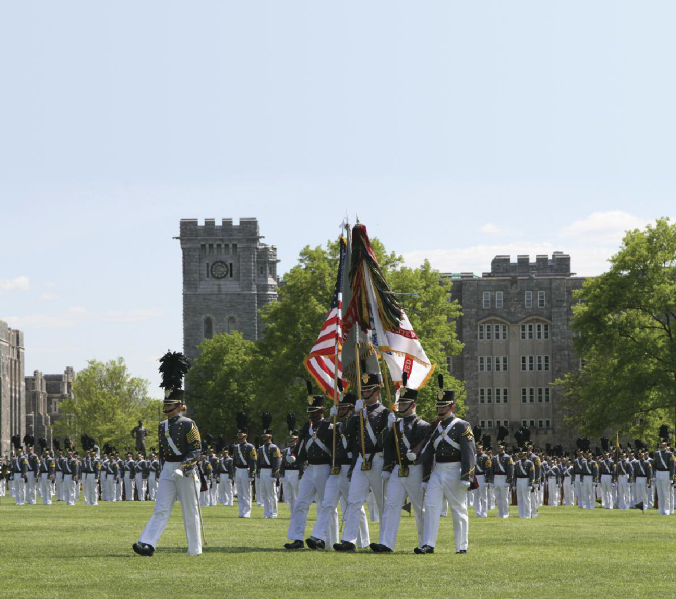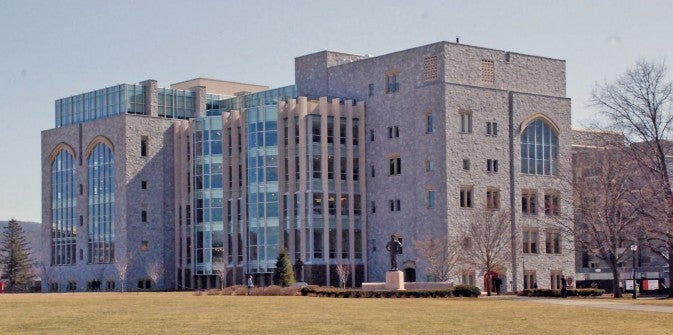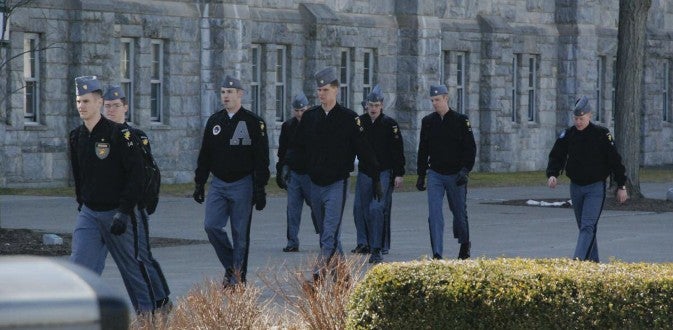Preparing Officers to Win In a Complex World
Preparing Officers to Win In a Complex World
Some of the most important lessons we can learn from the last 13 years of war relate to the intellectual requirements of leadership. In complex and dynamic operational environments like Iraq and Afghanistan, understanding the social, cultural, economic and political contexts was critical to our success. We found that effective leaders used their acquired understanding to recognize, create and exploit opportunities to accomplish the mission and advance our national interests. Of course, advancing our interests in complex environments also requires interpersonal skills and the will to collaborate effectively with a whole host of entities: indigenous security and political partners, other military services and components, additional U.S. government departments and agencies, nongovernmental organizations, and coalition nations. The newly released Army Operating Concept builds on this understanding with its emphasis on innovation and working effectively with diverse mission partners across all domains.
The U.S. Military Academy at West Point, N.Y., the birthplace of tactical and strategic leaders, must continue to meet the country’s evolving national security needs as it has in the past, whether by providing engineers to enable Westward expansion in the 19th century, developing strategic thinkers to support the global security role of the U.S. in the 20th century, or forging broadly educated, intellectually agile officers who are able to recognize and take advantage of the technological, social, political and economic possibilities that will characterize our current century. It is our responsibility to produce leaders of character for the Army who have the tenacity and agility to thrive in complex environments, the ambition to strive for excellence, and the resilience to reach their full potential.
It is the opportunity to participate in this mission that makes a faculty or tactical officer tour at West Point such a uniquely valuable broadening assignment. While the most important strategic contribution of the U.S. Military Academy (USMA) to the Army remains the officers we commission, we also send out to the Army each year a lesserknown yet absolutely vital second graduating class. These competitively selected officers, who have already proven themselves through key developmental assignments at the company-grade level, enjoy a superb opportunity to make significant and lasting contributions to the future of the force even as they better prepare themselves to be agile thinkers capable of contributing in positions of strategic leadership within the Army and the joint force.
Professional growth and intellectual development do not come without effort, and obtaining a graduate education en route to a USMA faculty or tactical officer assignment is an exceptional way to grow intellectually and hone the critical thinking skills that today’s security environment demands. Although we place great value on operational experience in the Army, experience alone does not cultivate in future leaders the advanced knowledge and habits of mind they need in order to be effective institutional leaders in the Army and operational and strategic leaders in the joint force. True growth occurs when officers have the opportunity to reflect on lived experience, to understand the larger contexts of the challenges they have faced and to prepare for the future through rigorous study. That is exactly what the West Point broadening assignment is all about.
Opportunities for Professional Development
The military officers who serve tours in our tactical or academic departments have the opportunity to attend some of the finest graduate schools in the country. While in these programs, they must demonstrate the intellectual courage and self-discipline needed to navigate the rigors of demanding academic programs in disciplines ranging from the physical sciences and engineering to the social sciences and the humanities. Because our officers engage in these pursuits in the company of fellow graduate students from diverse backgrounds, from the U.S. and abroad, graduate school also offers a rich opportunity to gain an appreciation for the value of additional perspectives, to foster civil-military understanding and even to lay the groundwork for potential international working relationships.
The professional development offered by a USMA tour continues after completion of graduate school and arrival at West Point. Rotating military faculty members work with and continue to learn from highly talented civilian and long-term military faculty counterparts. The presence of civilian faculty makes the civil-military relationship a daily fact of life. With their disciplinary expertise, vital publishing life and links to other academic institutions, these faculty members mentor and challenge our rotating officers and serve as invaluable role models.
Together with the senior members of our civilian faculty, our long-term military faculty members provide essential leadership and governance to the academic program and to the institution as a whole, even as they bring their military experiences, academic and professional relationships, and talents as scholars to bear in addressing issues of concern to our Army and our country. Working within this context, the special contribution of rotating military faculty members is made possible by their combination of recent experience in the field as company-grade leaders and graduation from top-tier graduate programs. While educating, training and inspiring the Corps of Cadets, these officers serve as superb role models devoted to character development and continuing professional and intellectual growth.
It is difficult to overstate the contribution that just one senior captain or junior major can make during his or her time at West Point. Through teaching, supporting cadet activities outside the classroom and serving as an individual mentor or sponsor in a wide variety of programs, an officer may work with as many as 500 future lieutenants. Our faculty members and tactical officers find that these opportunities bring great personal satisfaction, cementing their dedication to the remainder of their Army careers. The impact they have on our future leaders is a legacy these officers will be proud of for many years.
Natural Focal Point
The developmental opportunities associated with a USMA faculty tour extend well beyond the academy. As the Army’s wholly owned four-year college and commissioning source, West Point is a natural focal point for the Army’s engagement with other institutions of higher education and civil society more broadly. In some cases, the speaking, writing or other outreach activities of our rotating military faculty members are natural extensions of their graduate work. In other cases, newly arrived officers join one of the many ongoing research projects or centers at USMA. The Office of Economic and Manpower Analysis, for instance, helps the Army address its human resource challenges, while the recently formed Army Cyber Institute is assisting the Army in maturing its cyberspace operations capabilities.
As West Point’s superintendent, I view it as essential that the academy remain a source of pride for all the Army’s members and an example of professional excellence to which all may aspire. Gen. Colin L. Powell, a graduate of the City College of New York commissioned through ROTC, said this best when he noted that West Point is “the wellspring of my chosen profession—the place where the professional standards are set, the place that defines the military culture, the place that nurtures the values and virtues of Army service and passes them on from generation to generation.” Some of our prior faculty members, such as the current Chairman of the Joint Chiefs of Staff, Gen. Martin E. Dempsey, not only were graduates of West Point but also served tours on our faculty. Others, such as former Vice Chief of Staff of the Army Gen. Peter W. Chiarelli, were commissioned elsewhere but then served a faculty tour here. Current senior Army leaders who had assignments at West Point during their captain and major years include Gen. Lloyd J. Austin III, commander, U.S. Central Command; Gen. Charles H. Jacoby Jr., commander, U.S. Northern Command; Gen. David G. Perkins, commanding general, U.S. Army Training and Doctrine Command; and Gen. Curtis M. Scaparrotti, commander, U.S. Forces Korea. For officers from all commissioning sources, West Point offers a way to enhance a career of significant contribution to our Army and our country.
To those of us who serve as Army officers, it may seem almost too obvious to say that our job is always—at its core—about people. Leadership is central to our identity and traditions, a point that has been made at almost every Army retirement ceremony I have attended. I have often heard officers at these events describe their true legacy as resting on the people they developed, the future leaders of the Army. That is precisely the work of West Point. For those of us who serve here—officer, civilian and NCO—it is a tremendous honor and privilege to be a part of it.




